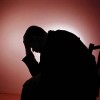Dealing with Serious Illness
 Often, when serious illness occurs, it is all too easy for the patient and his family to feel alone and at a loss about what to do. The various issues that arise—financial, medical and halachic—can seem daunting. Factor in the emotional stress that accompanies any major illness, and the experience can be downright terrifying for all involved.
Often, when serious illness occurs, it is all too easy for the patient and his family to feel alone and at a loss about what to do. The various issues that arise—financial, medical and halachic—can seem daunting. Factor in the emotional stress that accompanies any major illness, and the experience can be downright terrifying for all involved.
Attempting to assist patients and their families, the Orthodox Union’s (OU) Department of Community Services is offering communal symposiums designed to provide the greater Jewish community with information, tools and resources to help navigate the maze of halachic, ethical and medical complexities that accompany critical illness. The symposiums, attended by hundreds and run by the OU in conjunction with the Metropolitan Jewish Health System (MJHS) in New York, bring together experts on different aspects of end-of-life care: a rabbi, a palliative care physician, an elder-care attorney (to discuss financial planning and the costs incurred when treating a terminally ill patient) and a chaplain (to discuss common emotional reactions experienced by patients and their families when approaching the end of life). Entitled “When Serious Illness Strikes…,” the symposiums, launched in 2005 and held throughout the New York area, have included prominent speakers in the rabbinic, medical and legal fields. Speakers have included Rabbi Tzvi Flaum, former rabbi of Congregation Kneseth Israel in Far Rockaway and mashgiach ruchani of Lander College for Women; Rabbi Hershel Schachter, rosh yeshivah of the Rabbi Isaac Elchanan Theological Seminary (RIETS) and halachic consultant for the OU; Rabbi Mordechai Willig, rosh yeshivah and rosh kollel of RIETS; Eytan Kobre, an elder-care attorney in Manhattan and Dr. Beth Popp, oncologist, associate director of the Division of Hematology/Medical Oncology and director of the Palliative Care Program at Maimonides Medical Center in Brooklyn.
“When serious illness strikes, the question is, Who makes the decision about treatment and end-of-life care—the patient, the physician or the rabbi?” asks Frank Buchweitz, director of the OU’s Department of Community Services and Special Projects. “Unfortunately, illness can strike at any age, and information and education can help overcome the anxiety and stress that families facing illness experience.”
The “When Illness Strikes…” symposiums have covered a variety of issues including halachic living wills, halachically permissible autopsies (according to many rabbis, an autopsy is permissible if the results could have an immediate benefit to living patients) and halachic hospice care (in which nutrition and hydration are not withheld, as is usually the case).
“When, God forbid, illness strikes, it changes all the dimensions of family life,” says OU President Stephen J. Savitsky, who has worked in the healthcare field for more than thirty years.
“The more knowledge one has on this important topic, the easier it will be to handle the adversity.”
Toby Weiss, project manager of the Department of Hospice and Palliative Care of MJHS, hopes that “people who come to these discussions will walk away with a greater understanding and deeper appreciation of what services are available to improve the quality of life for both a seriously ill patient and his family.”
Weiss adds: “It’s extremely important to know how to access resources that can provide comfort and address quality of life issues in a halachically compatible way.”
The OU’s Department of Community Services is expanding its “When Illness Strikes…” program to meet the needs of communities around the country. Communities interested in hosting a symposium should contact Frank Buchweitz at 212.613.8188 or frank@ou.org.
Tova Ross is a public relations assistant at the Orthodox Union and a freelance journalist. She lives in Westchester, New York, with her husband, David.
